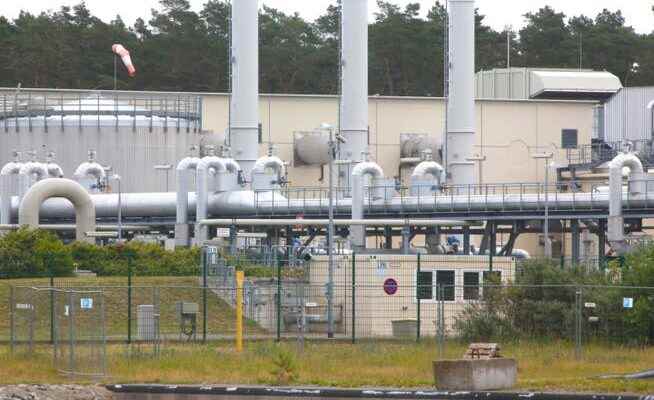The EU is working on one of the most extreme market interventions in its history. However, it is proving quite difficult to impose a price cap on natural gas that is not harmful.
The Commission only wanted to put a maximum price on Russian natural gas. Others suggested putting a price cap on all gas imports.
“We will finalize the work of our ministers”, said an elated Emmanuel Macron on Thursday before the summit with the other 26 EU heads of state and government after the victory of the French national football team in Qatar the night before. The French President referred to one of the strangest dossiers Brussels has to offer at the moment, the natural gas price cap.
Fear of angry people and yellow vests
The attack on Ukraine prompted the EU to impose sanctions on Russia, which Russian President Vladimir Putin responded to by severely curtailing natural gas supplies to the EU.
This contributed to the rise in energy prices in Europe and inflation in general. Rising prices, especially for fuel, usually make politicians nervous. In July, the German foreign minister warned of the threat of “popular uprisings», Russia would stop supplying natural gas. And Macron is reluctant to remember the “gilets jaunes”. The yellow vest protests in France were sparked by higher taxes on petrol and diesel.
This is one of the reasons why the heads of state and government want to do something about the high prices. The concrete plans include the price cap for natural gas being considered by the EU. Although the term “price cap” is often used, almost everyone has a different understanding of it.
Spanish Prime Minister Pedro Sánchez was one of the first to call for such a cap at EU level as early as autumn 2021. He capped the natural gas needed to generate electricity in his country, which is now referred to as the “Iberian model”.
The Commission later proposed that only Russian natural gas should be subject to a maximum price. Others wanted to put a price cap on all gas imports.
In the meantime, a group of 15 EU countries has formed, which are also known as “decklers” (“cappers”) behind the scenes in Brussels, including heavyweights such as France, Italy and Spain. They urged the Commission to finally propose a price cap.
The 15 countries are Belgium, Bulgaria, Croatia, France, Greece, Italy, Latvia, Lithuania, Malta, Poland, Portugal, Romania, Slovakia, Slovenia, Spain
— Lion Hirth (@LionHirth) October 1, 2022
In October they reluctantly presented a first version, and in November a more detailed proposal. However, the Deckler sometimes described this as a “joke”. Why?
To put it very simply, the cap would only be used under very restrictive conditions, and if it were in force, the Commission could immediately deactivate it for many reasons. The fact that even in September, when there were particularly strong spikes, the lid would not have been activated caused annoyance.
The commission’s projecting cover
In one cartoon, a lid was shown reaching out into space. Because after the reservoirs have been filled and thanks to a mild October, the prices are still comparatively high. However, at EUR 200 per megawatt hour, the reference product on the Dutch TTF market costs significantly less than the upper limit of EUR 275 proposed by the Commission.
The Europese Commission comes only with a gas plafond maar that blijkt onbruikbaar hoog. De kans dat het ooit in working treedt is vrijwel onbestaande.#doorbraak #cartoon #EU #EuropeseCommissie #gas ceiling #tinne #big #gas pic.twitter.com/mvYRuUdi1I
— Erwin Vanmol (Hij/Ger) (@Vanmoltoons) November 23, 2022
The opponents of a cap, including Germany, see the security of supply endangered by a maximum price. After all, Germany has filled its stocks by buying the natural gas available on the world market, whatever the cost.
Even important experts think little of the idea of a gas cap. If Europe introduced a price cap, markets would stop functioning and cross-border trade would cease, energy economist Lion Hirth wrote on the short message service in early October Twitter. Then governments would negotiate gas allocations instead. Economics teaches that demand exceeds supply when the price is “too low” and not in line with the market.
Despite Macron’s optimism, the EU heads of state and government failed to reach an agreement at their winter summit either. Now the energy ministers are supposed to continue looking for the price cap next week, which will limit prices but at the same time do without the disadvantages of a price cap.
